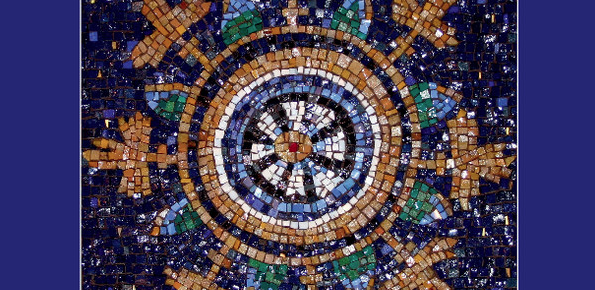
Have you ever wondered where the world comes from? What about evil? Or ever thought about whether we have free will and what this means? You must have! Such questions have preoccupied all generations since rational thought began. One’s religious beliefs and the scientific and philosophical views of one’s time shape how one addresses them. In Late Antiquity – towards the end of the Roman Empire – Christianity collided and interacted with non-Christian thought, much of which focused on interpreting the classical Greek philosophers Plato (c. 428-348 BCE) and Aristotle (384 – 322 BCE). This collision fostered particularly interesting answers to these fundamental questions.
Questions about the world’s origins and questions about human agency are connected by an important underlying concept: causality. How is the world caused, and what does this say about what it is? How do people cause things in the world, and what does this say about what we are? Causality is rightly at the heart of late ancient ideas about where the world comes from, how it works, and how humans are agents within it.
Causation and Creation in Late Antiquity explores some of the most important ideas on these subjects from Late Antiquity, from people such as Plotinus (c. 204-270 CE), the founder of Neoplatonism, and Augustine of Hippo (354-430 CE), the North African bishop.
How is the world caused?
Our answer might involve the Big Bang. It’s been mooted that the Big Bang was another universe collapsing in on itself (http://www.ibtimes.co.uk/big-bang-big-bounce-our-universe-formed-after-another-collapsed-itself-1570426). Interestingly, the ancient Stoic philosophers thought something similar: this cosmos emerged from the conflagration of an old one; it will ultimately combust, producing another, and so on, forever. If this is supposed to answer a question about beginnings, it is frustrating: it responds that the apparent beginning isn’t really one, side-stepping the issue. However, most Greco-Roman thinkers didn’t believe that the world had a beginning. This question did have an intricate history.
Plato talks about a demiurge creating the world, implying that it came to exist at a particular point. Aristotle believed that the world had always existed. Neoplatonists typically followed Aristotle, partly drawing on the principle that anything that had a beginning also had an end, and affirming, with Plato, the soul’s immortality. Christians, drawing on Genesis, insisted that the universe started and at a particular moment – but they also affirmed the soul’s immortality. Also, once you talk about the world beginning, you must think about time. Can time exist without the world? If not, how can we speak of a beginning? Reconciling these ideas involved reworking some fundamental principles. Consequently, late antiquity offers some especially detailed and novel accounts of the world’s origin.
How do we cause things?
Free-will versus determinism. People wondered whether and how they were compatible in Late Antiquity, as now. But what is free-will? The ability to will things arbitrarily? This might imply that freedom is freedom from being motivated by anything particular – e.g., love of your children; this is hardly desirable. Plotinus and Proclus (412-485 CE) instead think about freedom as becoming a moral agent.
If we invoke will to explain human actions it falls victim to the same circularity as explanations for the world – why doesn’t will need an origin? Tackling will’s origins, Augustine controversially suggested that everyone inherits the will to sin from Adam. Adam’s own sinful will remains tricky though – evil wasn’t created, so how did it start? One question about creation and causation led to another, creating a rich, tangled network of thoughts, aiming to explain what the world is about.
Latest Comments
Have your say!